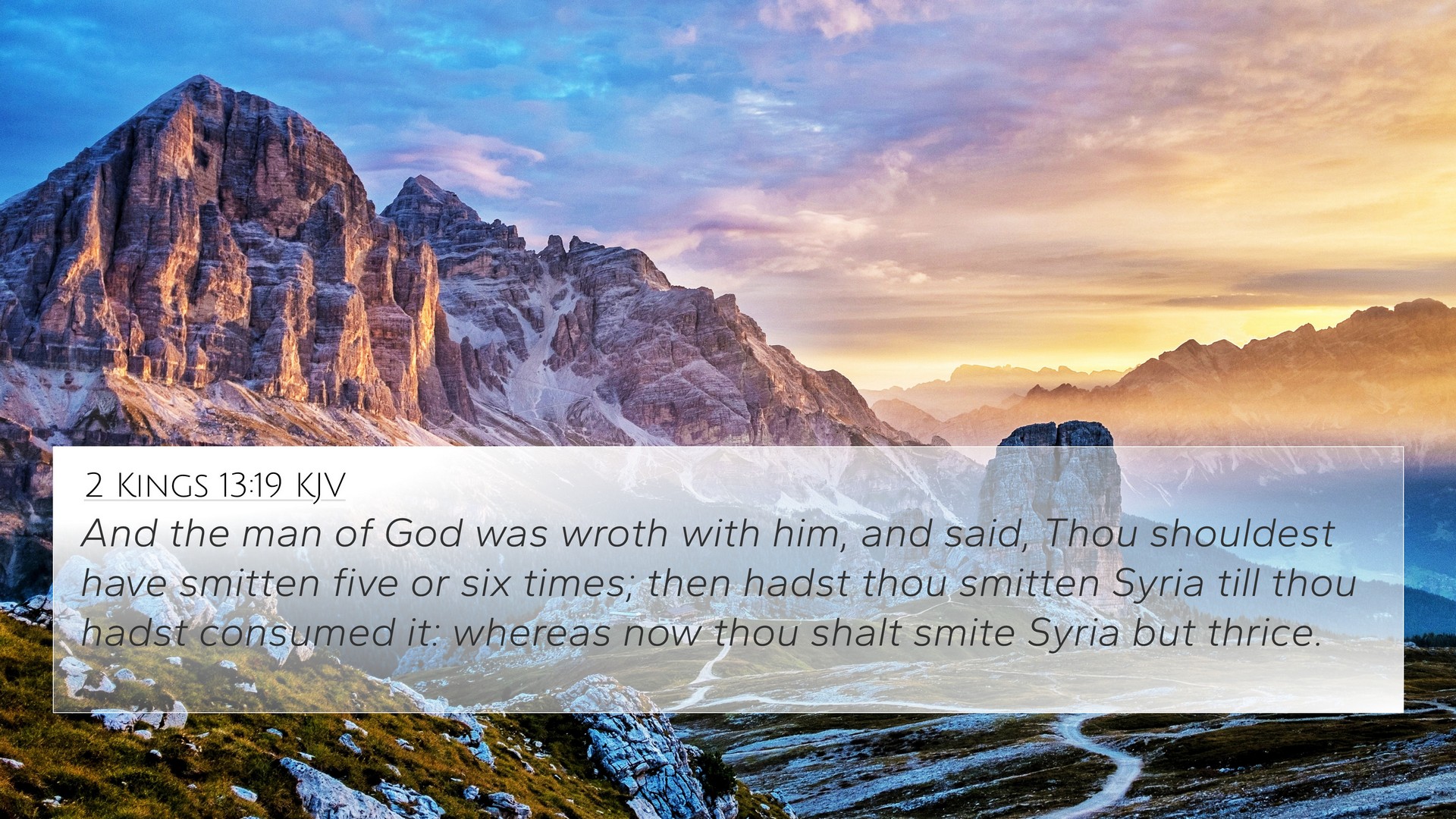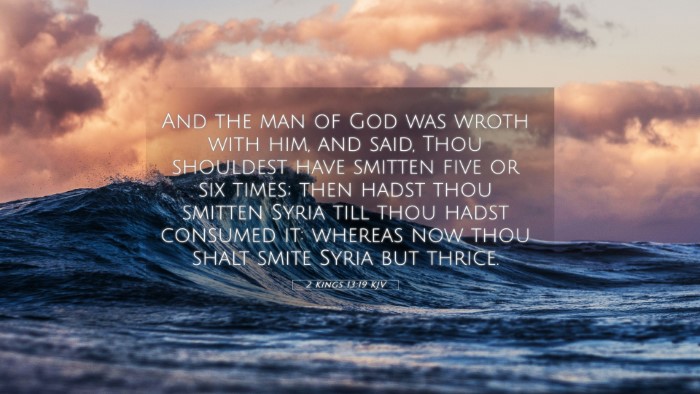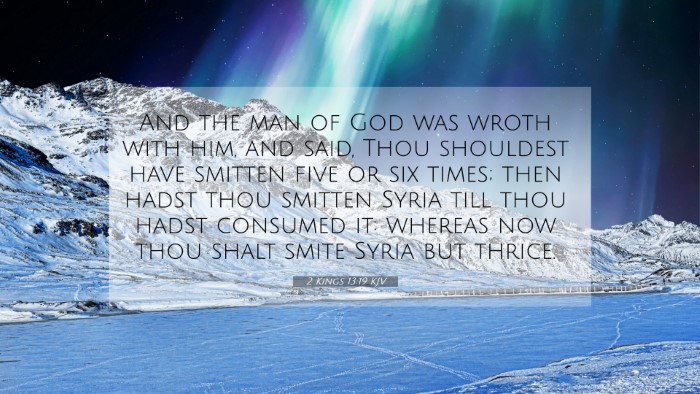This section features a detailed cross-reference designed to enrich your understanding of the Scriptures.
Below, you will find carefully selected verses that echo the themes and teachings related to 2 Kings 13:19 KJV. Click on any image to explore detailed analyses of related Bible verses and uncover deeper theological insights.
 2 Kings 13:25 (KJV) »
2 Kings 13:25 (KJV) »
And Jehoash the son of Jehoahaz took again out of the hand of Benhadad the son of Hazael the cities, which he had taken out of the hand of Jehoahaz his father by war. Three times did Joash beat him, and recovered the cities of Israel.
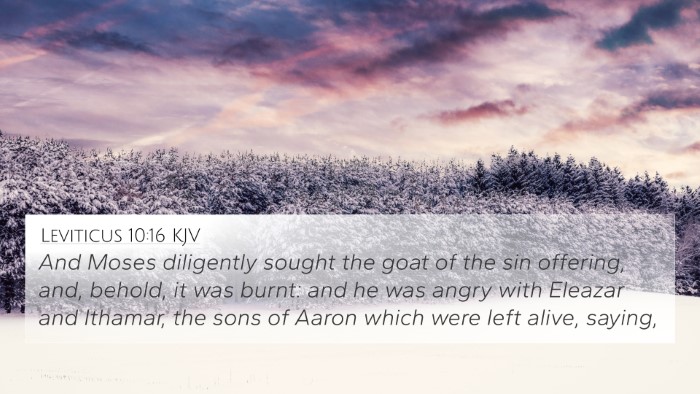 Leviticus 10:16 (KJV) »
Leviticus 10:16 (KJV) »
And Moses diligently sought the goat of the sin offering, and, behold, it was burnt: and he was angry with Eleazar and Ithamar, the sons of Aaron which were left alive, saying,
 Mark 3:5 (KJV) »
Mark 3:5 (KJV) »
And when he had looked round about on them with anger, being grieved for the hardness of their hearts, he saith unto the man, Stretch forth thine hand. And he stretched it out: and his hand was restored whole as the other.
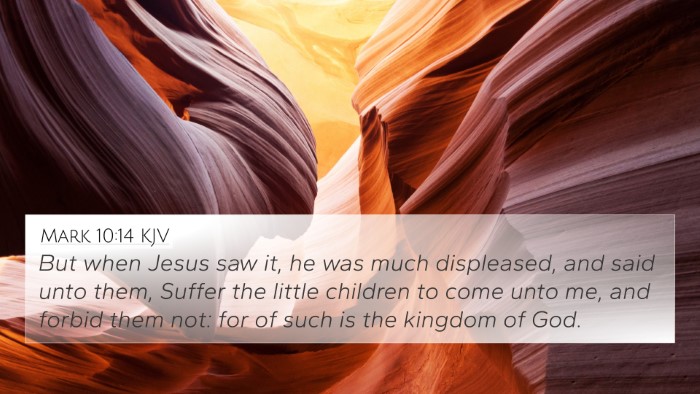 Mark 10:14 (KJV) »
Mark 10:14 (KJV) »
But when Jesus saw it, he was much displeased, and said unto them, Suffer the little children to come unto me, and forbid them not: for of such is the kingdom of God.
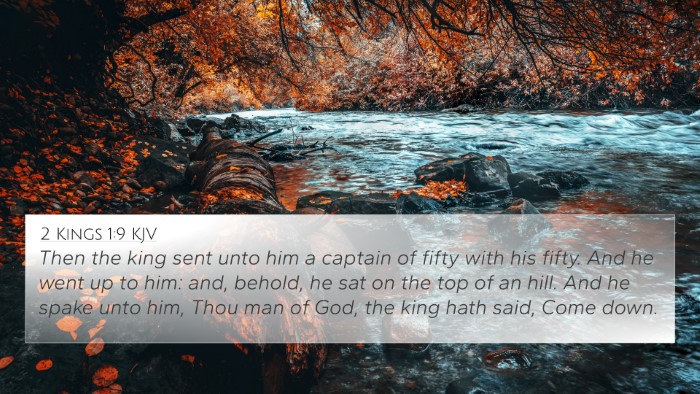 2 Kings 1:9 (KJV) »
2 Kings 1:9 (KJV) »
Then the king sent unto him a captain of fifty with his fifty. And he went up to him: and, behold, he sat on the top of an hill. And he spake unto him, Thou man of God, the king hath said, Come down.
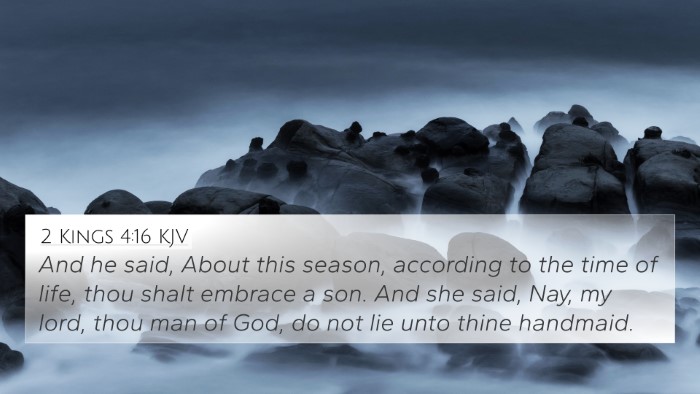 2 Kings 4:16 (KJV) »
2 Kings 4:16 (KJV) »
And he said, About this season, according to the time of life, thou shalt embrace a son. And she said, Nay, my lord, thou man of God, do not lie unto thine handmaid.
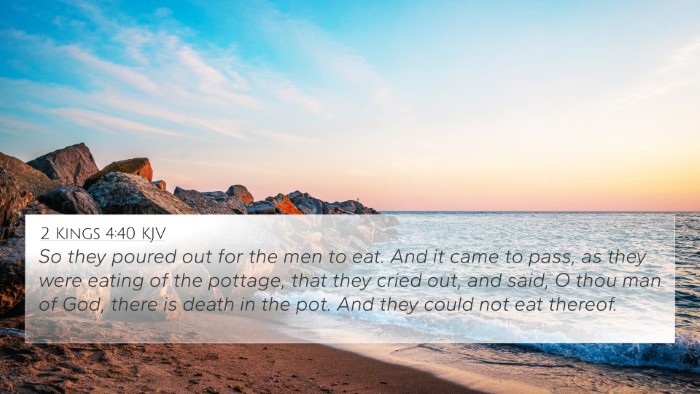 2 Kings 4:40 (KJV) »
2 Kings 4:40 (KJV) »
So they poured out for the men to eat. And it came to pass, as they were eating of the pottage, that they cried out, and said, O thou man of God, there is death in the pot. And they could not eat thereof.
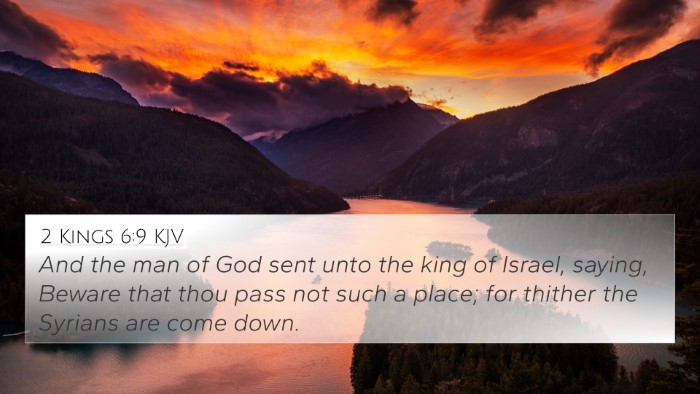 2 Kings 6:9 (KJV) »
2 Kings 6:9 (KJV) »
And the man of God sent unto the king of Israel, saying, Beware that thou pass not such a place; for thither the Syrians are come down.
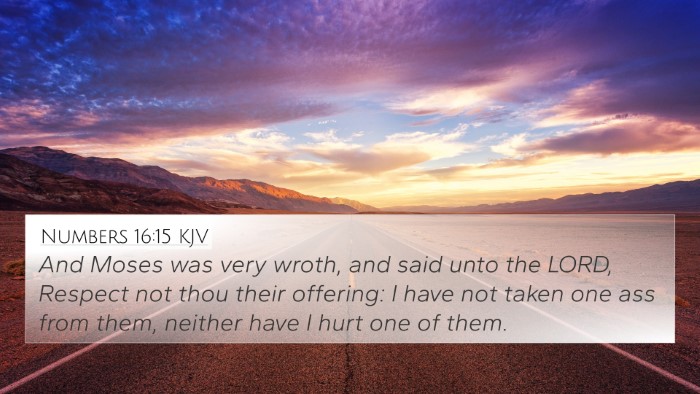 Numbers 16:15 (KJV) »
Numbers 16:15 (KJV) »
And Moses was very wroth, and said unto the LORD, Respect not thou their offering: I have not taken one ass from them, neither have I hurt one of them.
 Mark 6:5 (KJV) »
Mark 6:5 (KJV) »
And he could there do no mighty work, save that he laid his hands upon a few sick folk, and healed them.
